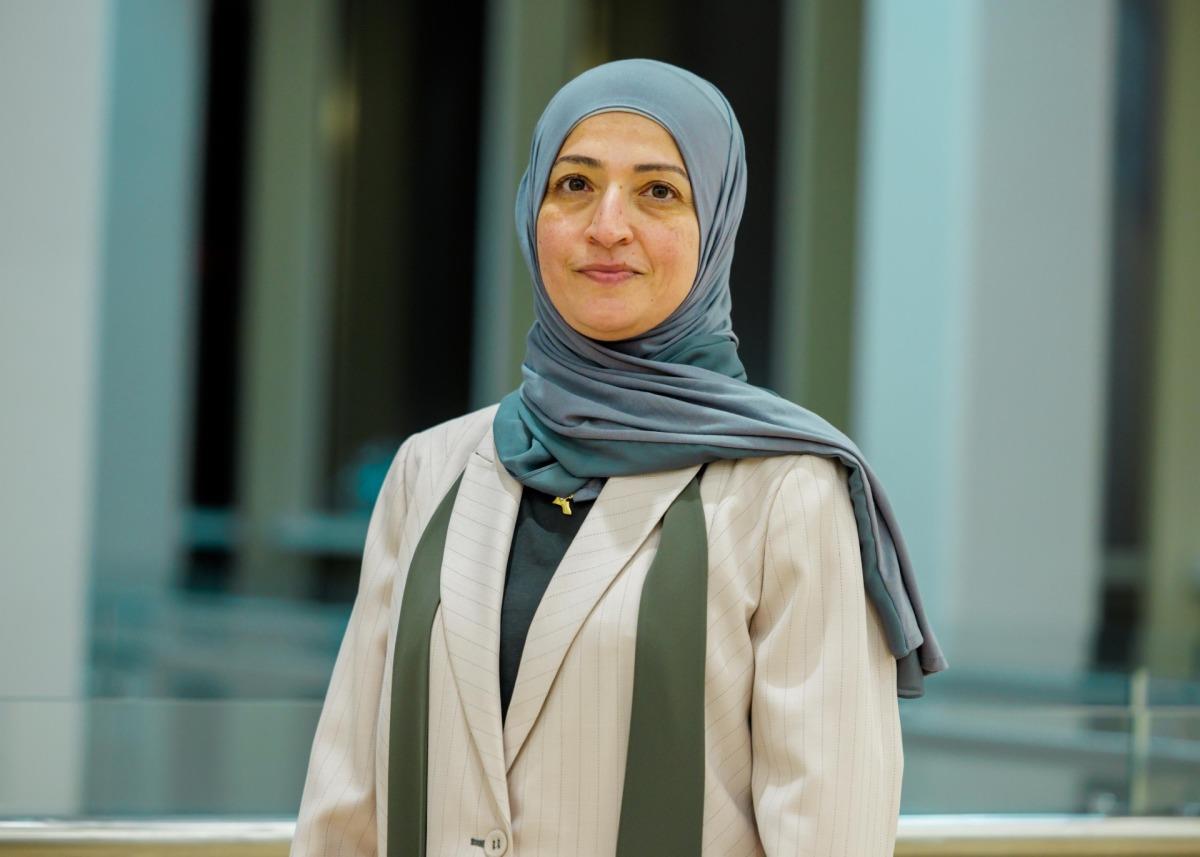AI Promises Support, Not Substitution, In Mental Health Care: Expert
Doha, Qatar: Artificial intelligence (AI) is increasingly shaping the landscape of mental health care worldwide, and Qatar, with its high digital connectivity and predominantly young population, is uniquely positioned to benefit from these innovations, according to Associate Professor at Weill Cornell Medicine Qatar and Senior Consultant Psychiatrist, Dr. Suhaila Al Ghuloum.
As Qatar continues its digital transformation, Dr. Al Ghuloum envisions AI playing an increasingly important role in mental health care enhancing access, personalising treatment, and supporting clinicians while preserving the irreplaceable human touch at the heart of psychiatry.
“AI's role in mental health is spreading globally, and the scope is huge,” Dr. Al Ghuloum told The Peninsula, adding that similarly Qatar is one of the countries with the highest digital transformation and highest online connectivity.
“It is not uncommon for a young patient to come to me having self-diagnosed using AI, though I have my reservations about this,” she said.
Read Also-
Awqaf Ministry, Islamic Fiqh Academy sign cooperation MoU
Global Ministerial Mental Health Summit kicks off today
'Qatari mediation bolsters opportunities for peace, stability'
She emphasised that AI can help fill existing gaps in preventive care and symptom-specific treatment. For instance, apps addressing insomnia are already showing promise in identifying individualised causes and offering tailored recommendations. Beyond treatment, AI has potential in public awareness, education, screening, and prevention of mental illness.
“We are not utilising it sufficiently yet, or to its full potential,” she said.
When asked whether AI could be transformative or primarily supportive, Dr. Al Ghuloum said it is a mix of both.
“It allows more personalised support, accessible when and where people need it, and can reduce reliance on clinicians. But it should never replace specialised psychiatric care. A good AI tool should guide individuals to seek professional help when necessary.”
Cultural and social context, she stressed, remains essential in mental health. While AI is evolving to offer more personalised and culturally sensitive guidance, she cautioned that no tools are currently comprehensive enough to replace human judgment.
Currently, AI is most commonly used for detection, screening, and self-diagnosis of conditions such as anxiety, depression, and ADHD, with certain apps successfully addressing insomnia and anger management. Globally, some hospitals are experimenting with AI to detect early behavioral changes and predict potential aggression in patients.
“Many of these are research-based, but the outcomes have proven highly valuable,” she said.
Dr. Al Ghuloum highlighted that AI complements, rather than replaces, psychiatrists.“Mental health care is deeply personal. Even the most knowledgeable clinician cannot help without empathy and understanding. AI can be an amazing asset to support clinical work.”
In education, AI offers opportunities to expose students and trainees to less common cases and assist in developing clinical reasoning, empathy, and emotional intelligence. However, she warned that reliance on AI in research and manuscript writing could compromise integrity if not properly regulated.
“Developing local regulations and guidelines is crucial,” Dr. Al Ghuloum said.
“AI has enormous potential but carries serious risks. Ethical and legal frameworks are needed to ensure data privacy, confidentiality, consent, and liability, particularly given reports of AI providing harmful advice to vulnerable individuals.”

Legal Disclaimer:
MENAFN provides the
information “as is” without warranty of any kind. We do not accept
any responsibility or liability for the accuracy, content, images,
videos, licenses, completeness, legality, or reliability of the information
contained in this article. If you have any complaints or copyright
issues related to this article, kindly contact the provider above.
Most popular stories
Market Research

- Cregis Releases 2025 Cryptocurrency Wallet Analysis
- Origin Summit Announces Wave 3: Animation Powerhouse Maggie Kang To Join Programming Lineup
- Falcon Finance Unveils $FF Governance Token In Updated Whitepaper
- Hola Prime Expands Its Platform Ecosystem With Next-Gen Tradelocker
- LYS Labs Moves Beyond Data And Aims To Become The Operating System For Automated Global Finance
- Tradesta Becomes The First Perpetuals Exchange To Launch Equities On Avalanche






















Comments
No comment